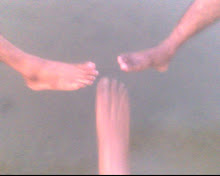It's not just humans who have a moral compass, animals too possess a sense of morality which allows them to tell the difference between right and wrong.
That's the conclusion of a new book.
Boffins who study animal behaviour reckon they have evidence to prove that species ranging from mice to primates are governed by moral codes of conduct in the same way as humans, The Telegraph reported.
However, Prof Marc Bekoff, an ecologist at University of Colorado, Boulder, believes that morals are "hard-wired" into the brains of all mammals and provide the "social glue" that allow often aggressive and competitive animals to live together in groups.
Bekoff reached the conclusion after compiling evidence from around the world that shows how different species of animals appear to have an innate sense of fairness, display empathy and help other animals that are in distress.
Prof Bekoff, who presents his case in a new book Wild Justice, said: "The belief that humans have morality and animals don't is a long-standing assumption, but there is a growing amount of evidence that is showing us that this simply cannot be the case.
"Just as in humans, the moral nuances of a particular culture or group will be different from another, but they are certainly there. Moral codes are species specific, so they can be difficult to compare with each other or with humans."
Prof Bekoff believes morals developed in animals to help regulate behaviour in social groups of animals such as wolves and primates.
He claims that these rules help to control fighting within the group and encourage co-operative behaviour.
Prof Bekoff, who co-wrote the book with moral philosopher Jessica Pierce, also from the University of Colorado, added: "There are cases of dolphins helping humans to escape from sharks and elephants that have helped antelope escape from enclosures. While it is difficult to know for certain that there is cross species empathy, it is hard to argue against it."
Monday, 25 May 2009
Subscribe to:
Post Comments (Atom)




No comments:
Post a Comment